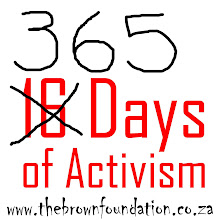In the same week that thousands of blankets were distributed to shelters and charity organisations as part of Radio Good Hope’s blanket drive, a homeless man claims that his wife died of exposure after being arrested and having her blanket confiscated. That’s the third homeless person, in and around, the city this month. Despite opposition by a number of NGOs including the Homestead, Sweat and the Big Issue, the recently passed By-law on Streets, Public Places and Prevention of Nuisances has already has begun to impact negatively on destitute people living on the streets of Cape Town. “The police just come here and take our blankets and tell us we must go”, claims Rasta who lived with the recently deceased Anna and her husband Elvis on Fort Wynyard Rd behind the V&A Waterfront for over 10 years.
According to Pam Jackson, Director of Ons Plek, a home for street children, there is a long history of police harassment of homeless people. “Dating back to the apartheid era, this kind of harassment has happened in the past” she reveals, “but I fear that the By-law has ushered in a new era of harassment”. Her sentiments are echoed by Sandra Morreira, Director of the Homestead and chairperson of the Western Cape Street Children’s Forum which was also part of the NGO task team opposed to the new By-law, “Harassment is happening anyway, our concern has always been that the intention of the By-law may be good but the problem comes in when it is implemented on the ground.”
Although Insp. Bernadine Steyn of the SAPS could confirm that that Sea Point Police conducts operations, or what Nowellen Petersen of Metro City Police describes as “interventions”, in conjunction with other law enforcement agencies on a regular basis, she denies that blankets have been confiscated. “During the past three weeks several integrated operations have been conducted and several people have been arrested for specific crimes, for example, trespassing. We want to state it clearly that no SAPS member confiscate any blankets as mentioned during the operations.” Heather Teger who is on the board of directors of the Sea Point City Improvement District also denies allegations that the Sea Point CID are involved along with Metro Police and SAPS in arresting people sleeping on the streets and confiscating blankets. “We have never confiscated blankets”, she says adamantly, adding, “We are very humane in our approach but we are not there to protect people who commit crimes”. However Pam Jackson of Ons Plek claims that blankets are being confiscated: “I know from a reputable source that this is happening and that two people have died as a result.”
Under the new “Prevention of Nuisances” By-law, begging and sleeping on the streets is illegal and, essentially, it criminalizes poverty which means that homeless people are resorting to hiding from police and organisations such as the Sea Point Community Police Forum in order to avoid being arrested. “People don’t want to come out of the building because they are scared of the police. That’s why people get sick in there” says Rasta pointing to an abandoned, derelict building next to Somerset Hospital. When Rasta takes me inside the building I can see why some have opted to brave the wet, cold nights and sleep on the roof of the building to the avoid the regular “integrated operations”. The rooms of the building are strewn with rubbish and the stench of human faeces is unbearable. “There is nothing in the By-law that says you can confiscate blankets. It is very inhumane – people are dying of exposure,” says Sandra Morreira, “these actions illustrate the problem of inappropriate implementation”.
The NGO Task Team which has made representation to Helen Zille, the Mayor of Cape Town and DA councillor J.P. Smith, chairperson of the Safety and Security Portfolio Committee, are concerned that the By-law targets the practices of the poor and marginalized: “It does not make sense to arrest and fine people for trying to keep warm, cook food and create a shelter for themselves when there is clearly a huge backlog in housing and people are homeless and forced to squat.” In a letter to the NGO Task Team, J.P. Smith has defended the By-law claiming that it is “one of the most progressive pieces of local government legislation in South Africa.” He points out that Cape Town, unlike Johannesburg and Durban, has not outlawed begging altogether. Smith claims that the By-law only prohibits “aggressive” begging and states that, “no person shall continue to beg from a person or closely follow a person after the person has given a negative response to such begging”.
However, the NGO Task Team have argued that what is problematic about the By-law is that it allows for individual discretion to decide exactly what constitutes an offence such as “aggressive” begging, which could lead to abuse and corruption. Pam Jackson of Ons Plek says that although “street people do their fair share of annoying and irritating people” to her “the By-law reflects a hardening of hearts towards street people”. The NGO Task Team believe that to arrest, charge and fine people for behaviour that is the result of social and economic hardships and destitution is not what Cape Town should be known for. “We believe that the city can deal more effectively with the issue of homelessness and people who live and work on the streets by developing a comprehensive strategy to provide them with viable alternatives” state the NGO Task Team in a written statement that outlines its recommendations for tackling the social problems of poverty and unemployment. For the homeless community sleeping on Fort Wynyard Rd, it is understandable why the Western Cape’s slogan “A Home for All” seems questionable. “I want to ask them why they don’t take the rubbish away in this street but they take us away”, implores Rasta, “we are the rubbish.”
Subscribe to:
Post Comments (Atom)




No comments:
Post a Comment